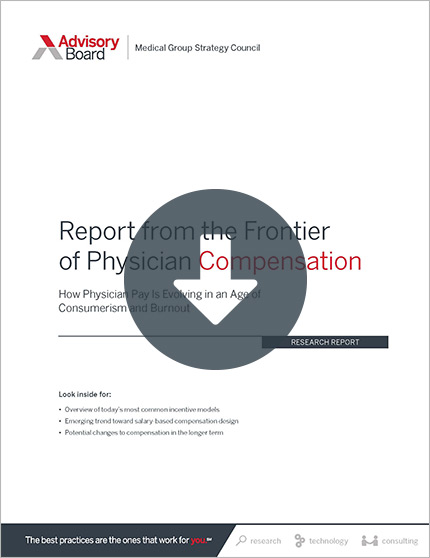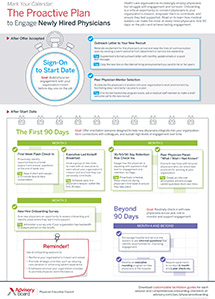Auto logout in seconds.
Continue LogoutHow are doctors like professional baseball players? According to Robert Pearl—who, as an avid baseball fan and a former CEO of The Permanente Medical Group, knows a thing or two about both—physicians and ballplayers alike keep making "the same four professional errors" when planning their careers and their finances.
New: The proactive plan to engage newly hired physicians
Here are their shared mistakes, Pearl writes in Forbes.
1. Expecting a huge payout soon after making it big
When professional baseball players start out, they often spend years laboring in the minor leagues honing their skills for a low wage—not unlike medical or surgical interns, Pearl writes.
So when players finally make the major leagues—and especially when they reach free agency—they often expect a huge payout. But that payday might not come as soon, or be as big, as players hope, Pearl writes. In the final weeks of the Major League Baseball (MLB) offseason, dozens of free agents still hadn't signed with a team, and many who did sign received lower contract values than they'd anticipated.
Similarly, the end of a doctor's residency or fellowship used to mean financial freedom. But these days, graduates of medical school have an average debt of $200,000, Pearl writes—taking a big bite out of their early paychecks.
In order to avoid becoming buried in debt, Pearl says new doctors should "live frugally your first couple of years after training … pay off your credit cards and unload your debts as quickly as possible."
2. Thinking promises are the same as written agreements
"For many years now, owners have all but promised its players a huge free-agency reward" after years of earning the "league minimum" salary, Pearl writes. Similarly, new doctors increasingly are agreeing "to a livable (but relatively low) salary, based on promises made by senior physicians that (in a year or two) they'll be earning three times as much."
But these promised payoffs don't always play out in reality, Pearl writes.
In baseball, players are accusing owners of working to keep salaries low and contracts short. But experts "question why the players didn't see this coming," as it's cheaper for teams to sign talented young players rather than signing older players who cost substantially more, Pearl writes
In medicine, Pearl writes, a new doctor's financial success hinges on more successful colleagues referring new patients with reliable insurance. And while that often does happen, Pearl writes that it's important to get those details in writing. "If you want to stake your future on someone else's word, get it included in your contract or written agreement," Pearl writes.
3. Not keeping their eyes on the ball
Many free-agents-to-be in baseball assume they'll receive large, long-term deals. Instead, "most will be fortunate to sign … one- or two-year" deals for significantly less, Pearl writes, while some "will end up with no offer at all."
Doctors, too, can get ahead of themselves when planning their career, Pearl writes. For instance, some consider putting their medical practice on hold in order to get their MBA, but Pearl advises against instead, doctors should "spend the first five years of [their] career becoming a great clinician" in order to develop their skills.
"Remember," Pearl writes, "if colleagues don't respect your medical, surgical, or diagnostic skills, they'll never trust your judgment or ability as a leader."
4. Assuming you'll be paid the price you want
As the offseason winds down, many MLB players have settled for contracts less than what they may have projected, simply because there are limits to what team owners are willing to pay, Pearl writes.
Doctors deserve to be paid more than they are, but "insurance companies set the terms," Pearl writes. He adds, "And, so far, they aren't budging." As the industry shifts towards value-based care, it's possible even in-demand specialists will be paid less in the future.
Doctors need to avoid getting "greedy or arrogant" by demanding they get paid the same prices doctors were paid in the past or by assuming they're irreplaceable. "It's too big a gamble and not worth the risk," Pearl writes.
"The economics of baseball and medicine are growing increasingly problematic. But they're both great and gratifying professions," Pearl writes. "Be wary when it comes to business of medicine, but don't let your caution erode the fulfillment you'll derive from helping and healing people in need" (Pearl, Forbes, 2/26).
New: The proactive plan to engage newly hired physicians
Download this infographic to learn how to drive engagement across physicians’ first 90 days at your organization and beyond.
Don't miss out on the latest Advisory Board insights
Create your free account to access 1 resource, including the latest research and webinars.
Want access without creating an account?
You have 1 free members-only resource remaining this month.
1 free members-only resources remaining
1 free members-only resources remaining
You've reached your limit of free insights
Become a member to access all of Advisory Board's resources, events, and experts
Never miss out on the latest innovative health care content tailored to you.
Benefits include:
You've reached your limit of free insights
Become a member to access all of Advisory Board's resources, events, and experts
Never miss out on the latest innovative health care content tailored to you.
Benefits include:
This content is available through your Curated Research partnership with Advisory Board. Click on ‘view this resource’ to read the full piece
Email ask@advisory.com to learn more
Click on ‘Become a Member’ to learn about the benefits of a Full-Access partnership with Advisory Board
Never miss out on the latest innovative health care content tailored to you.
Benefits Include:
This is for members only. Learn more.
Click on ‘Become a Member’ to learn about the benefits of a Full-Access partnership with Advisory Board
Never miss out on the latest innovative health care content tailored to you.



